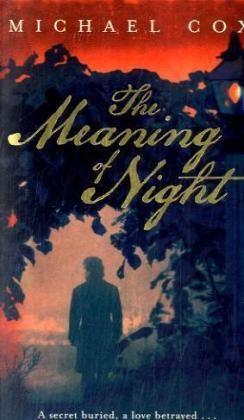Read more
A cold October night, 1854. In a dark passageway, an innocent man is stabbed to death.
So begins the extraordinary story of Edward Glyver, book lover, scholar and murderer. As a young boy, Glyver always believed he was destined for greatness. This seems the stuff of dreams, until a chance discovery convinces Glyver that he was right: greatness does await him, along with immense wealth and influence. And he will stop at nothing to win back a prize that he now knows is rightfully his.
Glyver's path leads him from the depths of Victorian London, with its foggy streets, brothels and opium dens, to Evenwood, one of England's most enchanting country houses. His is a story of betrayal and treachery, of death and delusion, of ruthless obsession and ambition. And at every turn, driving Glyver irresistibly onwards, is his deadly rival: the poet-criminal Phoebus Rainsford Daunt.
Thirty years in the writing, THE MEANING OF NIGHT is a stunning achievement. Full of drama and passion, it is an enthralling novel that will captivate readers right up to its final thrilling revelation.
About the author
MICHAEL COX has spent 25 years teaching quantitative methods to a wide variety of undergraduate students in departments ranging from agriculture, engineering, history, economics, business and medicine. For over 20 years he has taught both statistics and management science to MBA students.During his career he has published some 50 referred papers in such diverse areas as statistical process control, total quality management, multidimensional scaling and the analytical hierarchy process. In addition Michael has co-authored two text books and developed a major piece of software.Michael works in applicable mathematics, the solution of real world problems employing statistical and management science techniques. Most of this research has included computer applications.
Report
A tale of obsession, love and revenge, played out amid London's swirling smog ... Glyver is an outstanding creation ... Cox lovingly recreates the atmosphere of the period, from grand dinner parties to assignation with ladies of the night ... Yet he never allows period detail to swamp the human drama at the novel's heart' Daily Mail

